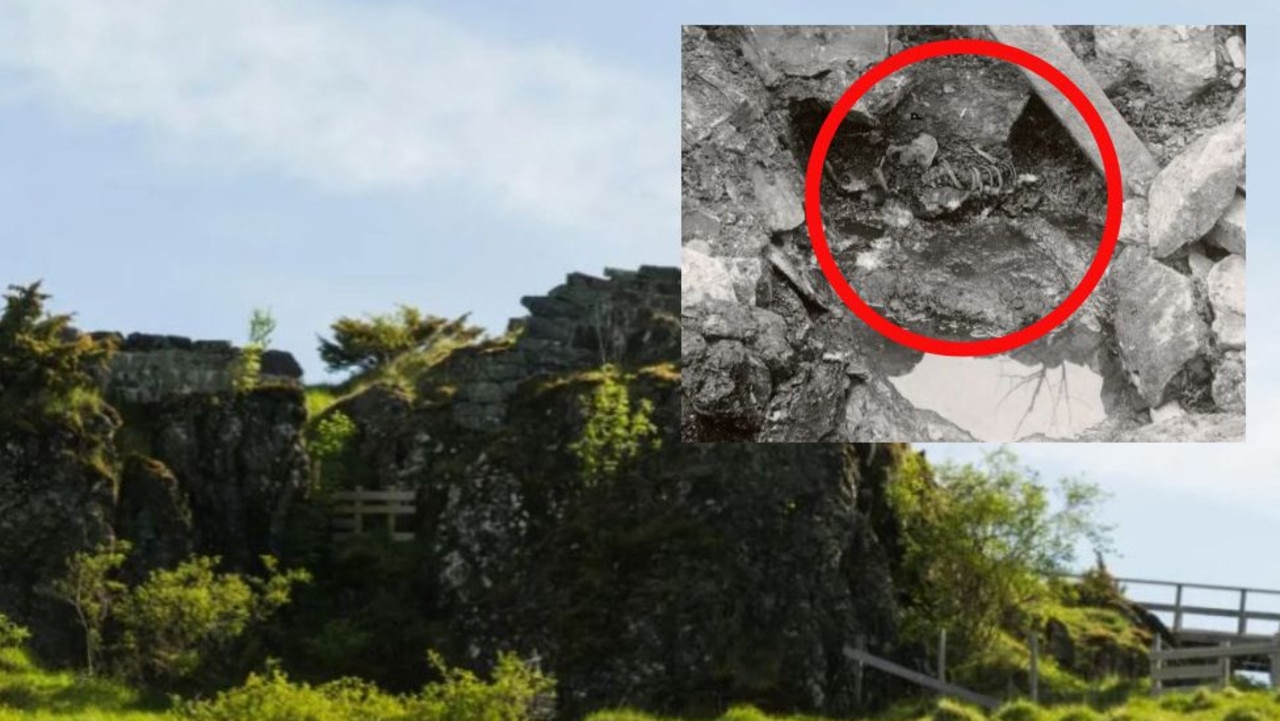A dictator next door: Striking reality of life inside South Korea’s gargantuan capital city
Nukes are lined up a stone’s throw from the CBD, and a menacing dictator threatens destruction. Welcome to the most bizarre city on Earth.
Getting lost deep inside the winding intestines of South Korea’s capital is an eye-opening experience unlike anything you’ll find this side of the equator.
Nukes are lined up a stone’s throw from the CBD, as Kim Jong-un strengthens ties with Russia. He’s grinning and embracing Vladimir Putin while his nuclear arsenal is growing by up to 18 warheads per year. Meanwhile, South Korea’s demilitarised zone, lined with thousands of conscripted soldiers, is on high alert waiting for the other side to sneeze.
It’s a striking scene that has captured the world’s interest.
But do people really care?
I strolled into Seoul with a bit of an ego, cynically humming Paul Kelly’s song “Every F**king City Feels The Same” as we went through the obligatory and monotonous bus ride from the airport.
As much as I’d like to say I’m an experienced traveller, I really wasn’t prepared for the culture shock that floored me, and it had nothing to do with the local custom of mixing soju with beer.
South Korea’s ‘miracle’
From the moment you cross over from Incheon into the CBD, you’re met with tens of thousands of shopfronts and skyscrapers crammed into dense boulevards. The city’s countless neon-lit side alleys are a magnetic force for curious travellers, who can find everything from vending machines selling gold bars to shops that exclusively sell saxophones.
It’s a rainbow explosion of small businesses, tiny art galleries and thousands upon thousands of Korean BBQ joints.
The incredible cuisine and extremely polite locals were enough to convince me this was a far more inviting habitat than Sydney, but it wasn’t until the obvious threat of North Korea entered conversation that I realised I was in a completely alien environment as a 28-year-old Australian.
For better or worse, young people in South Korea’s capital are showing the world how to detach from crisis in a very fundamental way.
While depression figures are some of the highest in the developed world, and birthrates are plummeting, the South Korean machine soldiers forward, blossoming out of the gloom.
Business is good in South Korea, and now creative industries are filling their pockets as the tidal wave of K-culture breaks over the West.
It’s natural for vibrant cultures to rise from crippling adversity, but South Korea’s philosophy on life really is something else when you compare it to how the average Australian lives.
A clear-cut example can be seen in something as simple as a phone notification.
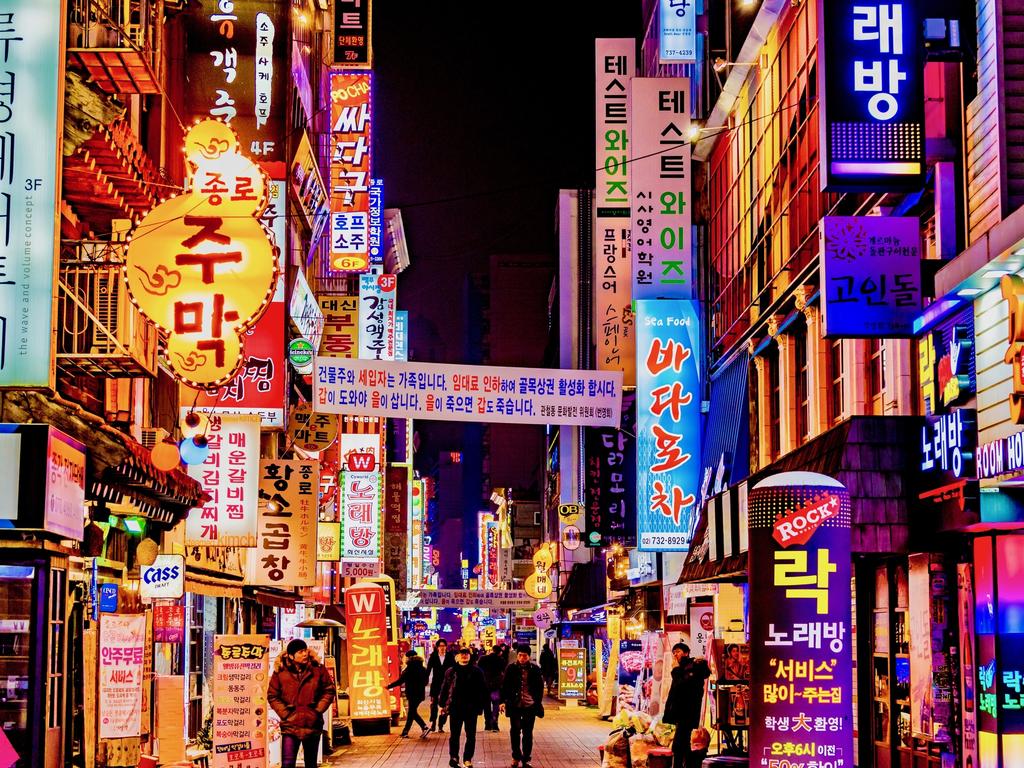
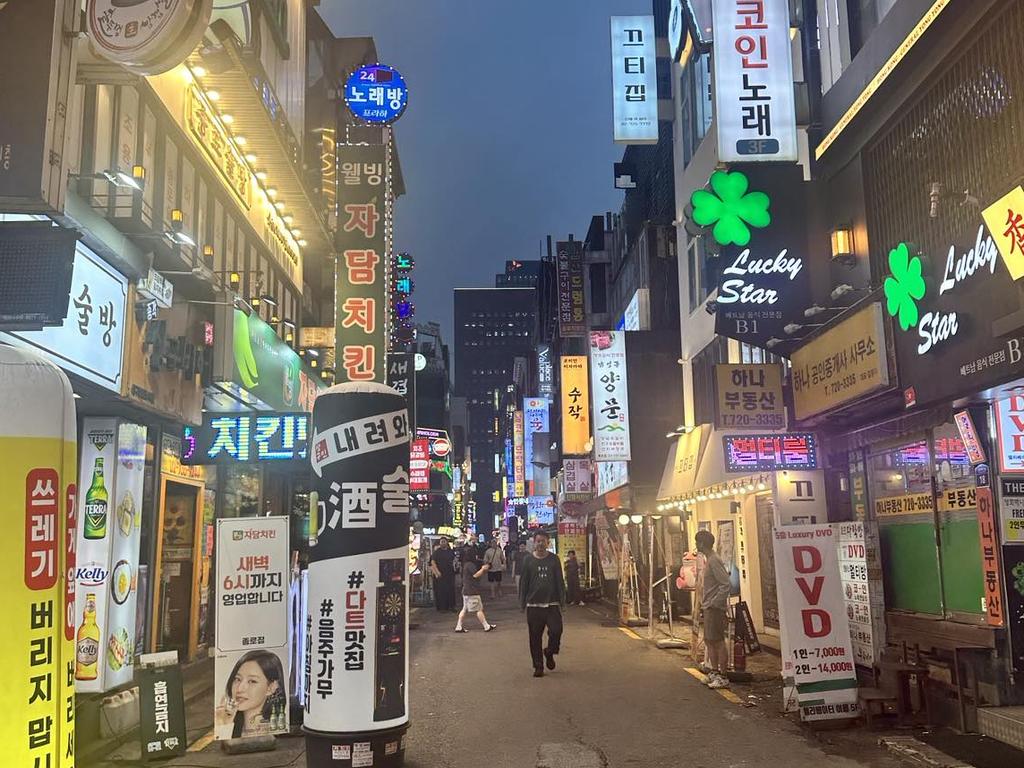
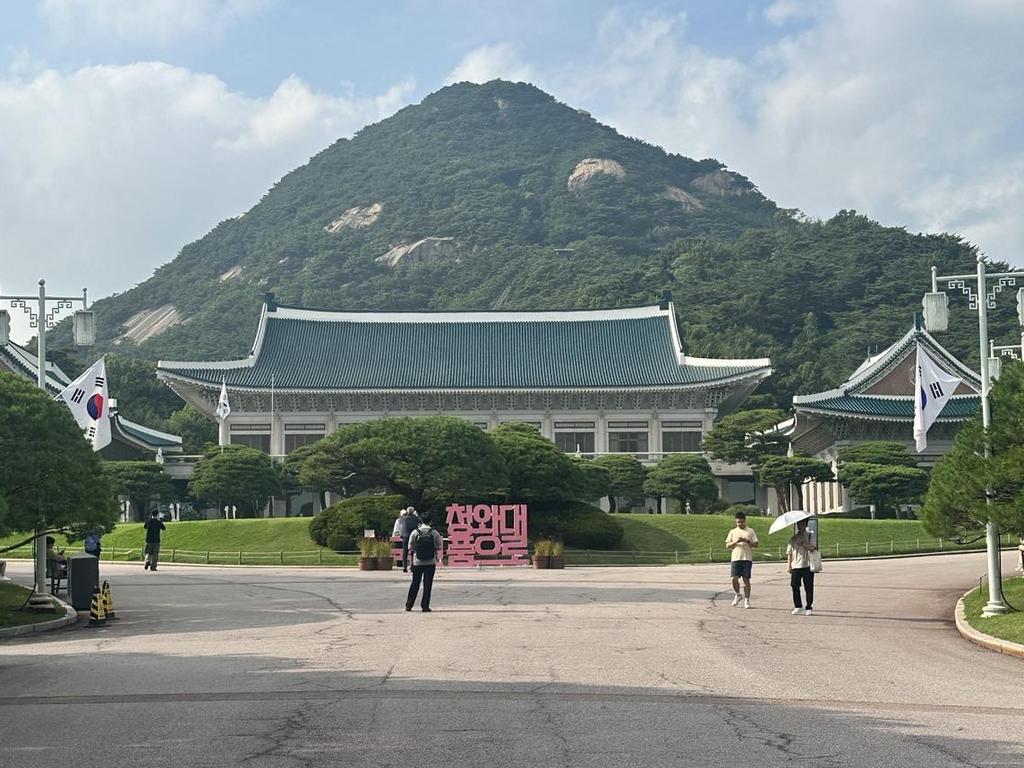
Multiple public safety announcements bombard your phone as soon as you touch down, warning you about everything from toxic gas, acid rain and landslides. Initially, these notifications are very unnerving for a language-illiterate traveller.
While foreigners rushed to screenshot and translate each message to make sure the skies weren’t about to erupt, the locals could be seen swiping them off their screen and continuing their day.
Almost like punk rock in Reagan’s America, South Korea’s rebellious modern culture has fascinated minds across the globe. It is a thick stew of both Western and Eastern influences that radically defies the North’s cut-and-dry communism.
While some may argue the cultural drive towards wealth has whittled away at the sanity of the youth, one thing is abundantly clear — it’s capitalism on steroids.
This is why they call Korea the economic miracle — a nation that has always had to struggle to survive due to a crippling lack of natural resources. In the 70 years following the Korean War, the South was able to multiply its GDP by 90 through aggressive expansion of business and innovation.
South Korea has been forced to muscle it’s way into the global market by becoming a dominant player in technology and ideas.
The trend has subsequently pushed panic over the very real possibility of war to the back of the younger generation’s minds.
The miracle is on display for all to see, warts and all.
As you’re met with self-driving buses, AI-generated newsreaders and even a machine that follows you around carrying your bags, you start to wonder how it’s all possible for a nation stuck in the middle of its very own 20th century cold war.
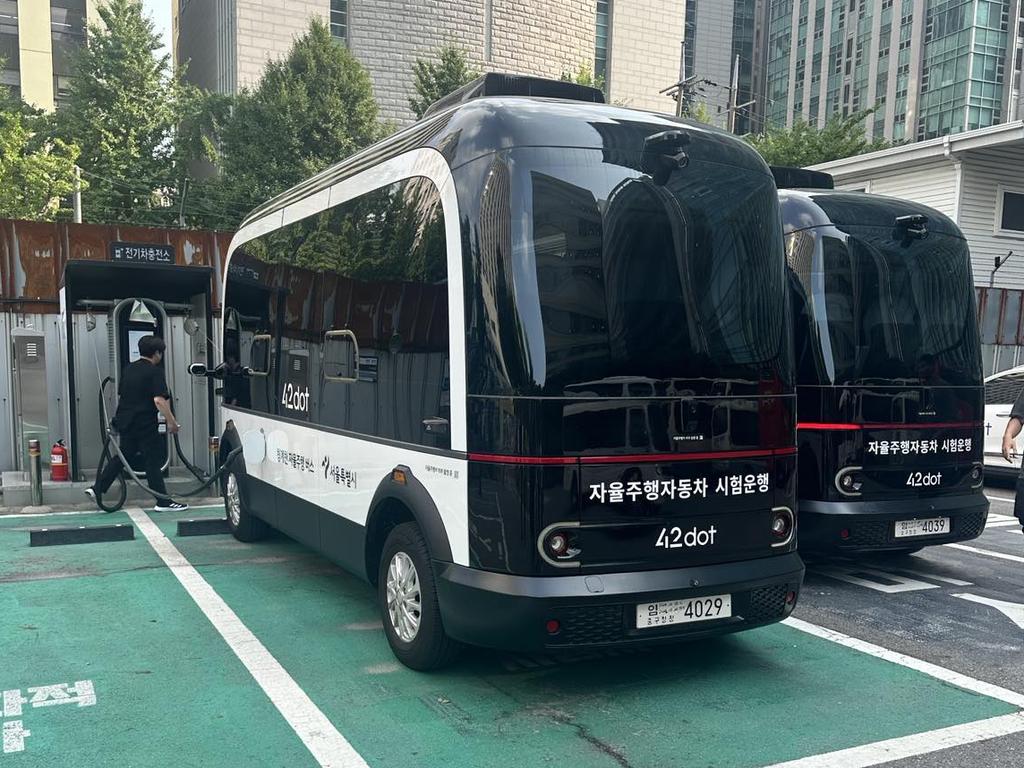
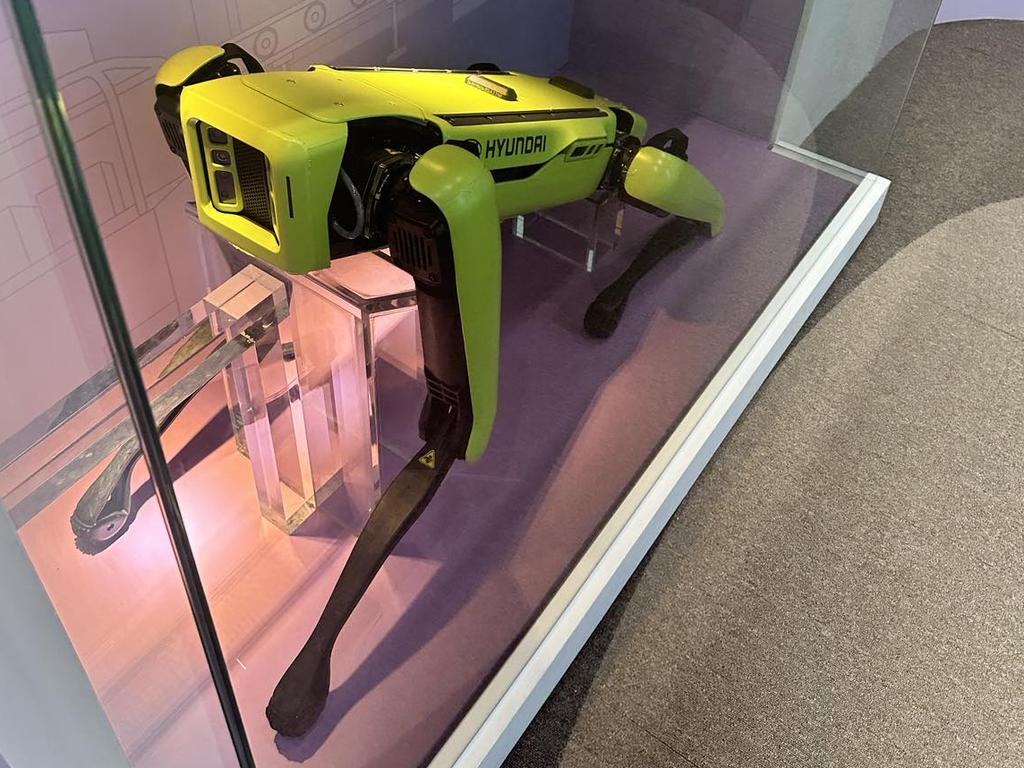
So it’s quite striking to see the South Korean populous remain largely detached, given the fact Western media outlets pump out headlines about Kim Jong-un’s missile tests as if they were the precursor to doomsday.
Nuclear war researchers like Annie Jacobsen, who warn that 5 billion people could be dead within an hour if a nuclear state were to unleash hell, have provided valuable insight, but have also whisked up panic.
Despite living so close to one of the potential flashpoints for WWIII, there is a clear “what can you do” mindset that echoes throughout the city as millions scurry around.
Tension, warheads and ‘macabre fascination’
Peter Lee from the Asan Institute of Policy Studies says the world has developed a “macabre fascination” with the North. While that might be true, there’s nothing like a portly, trigger happy dictator with a bizarre haircut when it comes to selling newspapers.
“Outside Korea, coverage of North Korea unfortunately seems to swing between macabre fascination, imminent conflict, and utter disinterest,” Peter Lee says.
But the allure appears to be for the rest of the planet to fixate on. Meanwhile, locals living in the metaphorical crosshairs of this dynasty are more concerned about problems at home.
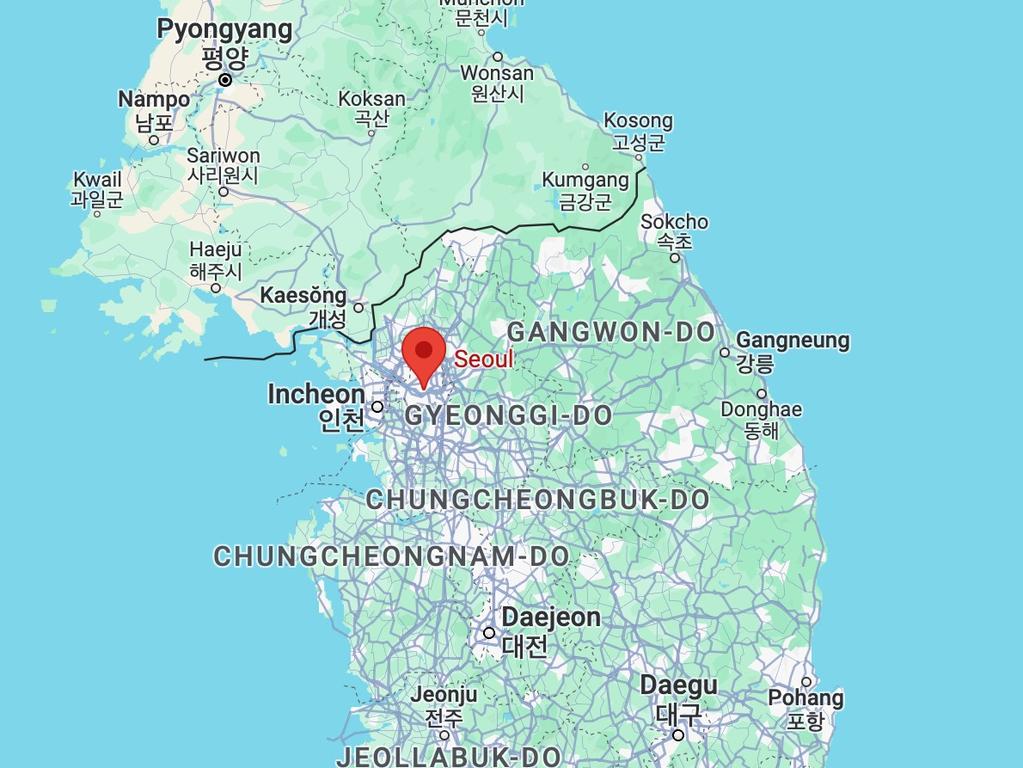
Mr Lee explains that the South has simply been forced to cope with the fact their neighbour is an infamous international celebrity who openly defies the US.
“It often looks like those living closest to danger seem to carry on the most normally, whether that is in South Korea, Taiwan, or parts of the Middle East and Eastern Europe,” Mr Lee, a research fellow at Asan, told news.com.au.
“That is partly a coping mechanism for surviving in perpetual tension, but it also reflects an acute sensitivity to risk.”
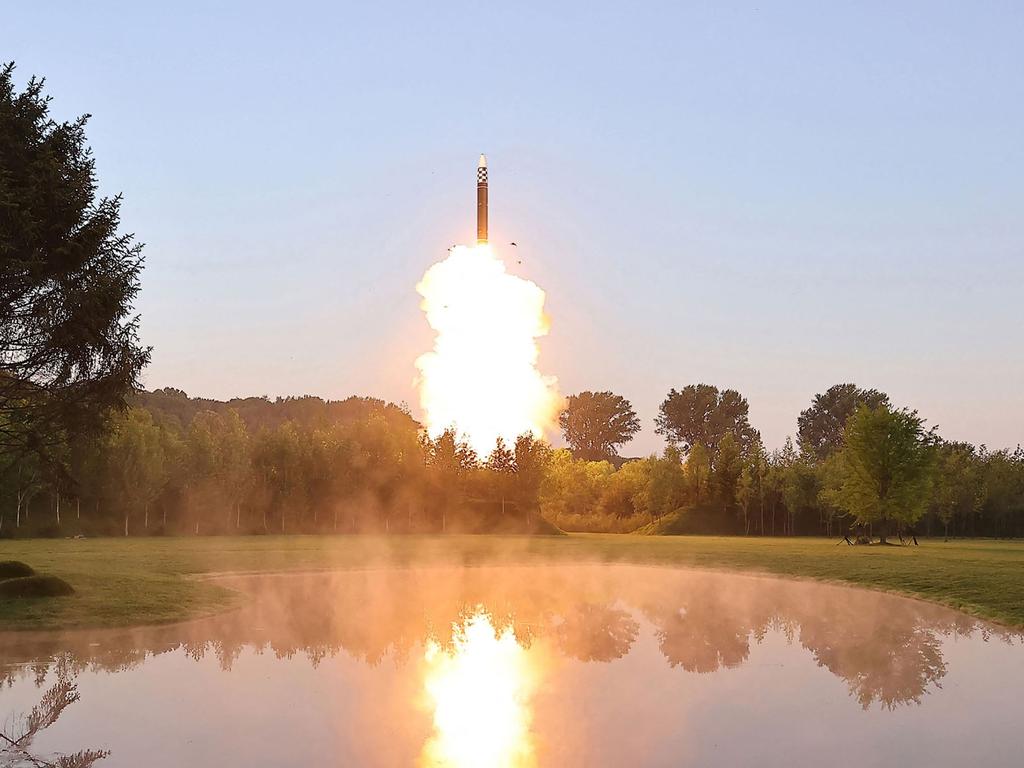
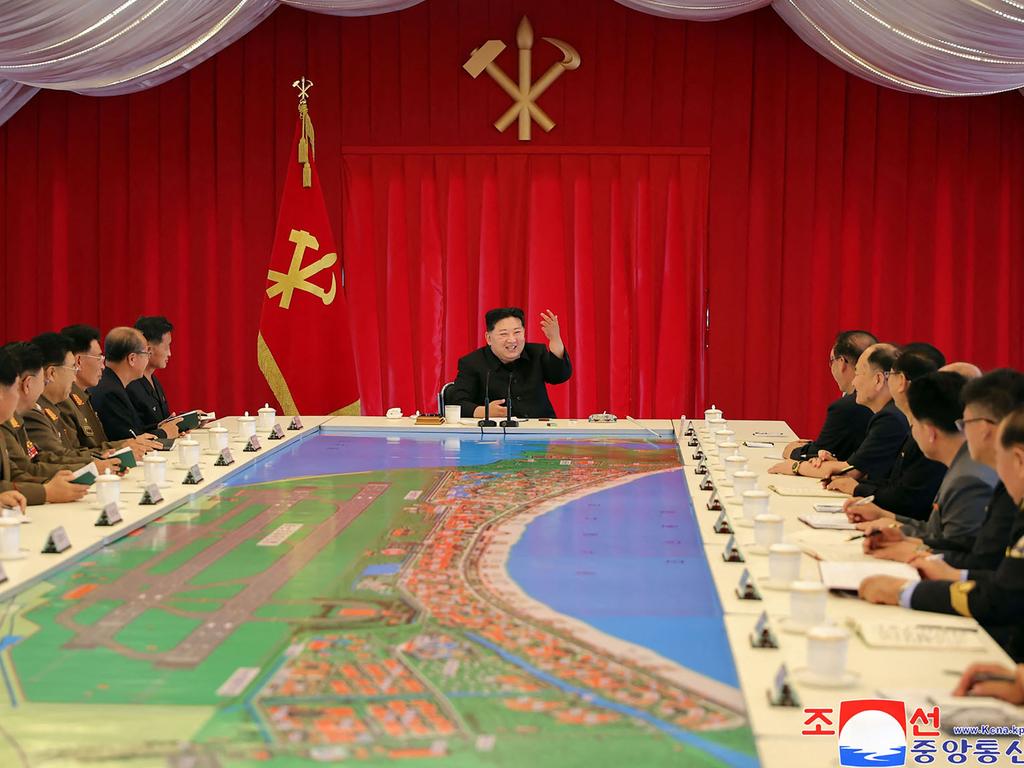
Around 72 hours before we landed, the North launched another unsanctioned missile test, bragging of a new ballistic armament capable of carrying “a super-large warhead”.
Tensions between the two governments are at some of their highest in recent years, as Kim Jong-un strengthens ties with Vladimir Putin in what analysts are describing as “the new axis”.
The recent trash balloon fiasco that saw the North send hundreds of waste-filled packages to drop in Seoul have also added to the geopolitical pressure.
Multiple border breaches by North Korean soldiers, who were subsequently met with warning shots from the South, also did very little to ease my stomach on the plane over.
So I expected to be walking into a somewhat panicked city — but that was definitely not the case. From an outsider’s perspective, it appears life goes on as if the North’s nuclear state doesn’t even exist.
Seonjou Kang from the Institute of Foreign Affairs and National Security says South Koreans are mostly “uninterested” in all things North Korea.
She says neo-conservative calls to arm the nation with nuclear weapons to match their neighbour’s arsenal have also fallen flat.
“The public hopes to have better relations with the North, but they are largely uninterested and are not thinking about reunifying,” she explained.
“Most of the public are aware the North has nuclear weapons, but they are also uninterested in South Korea arming itself with similar weapons.
“Some political groups talk about arming South Korea with nuclear weapons, but their ideas have not drawn huge support from the public.
“Even though leaders are constantly aware of the threat, the majority are desensitised.”
One can only wonder how the US zeitgeist would handle a similar situation on their own border.
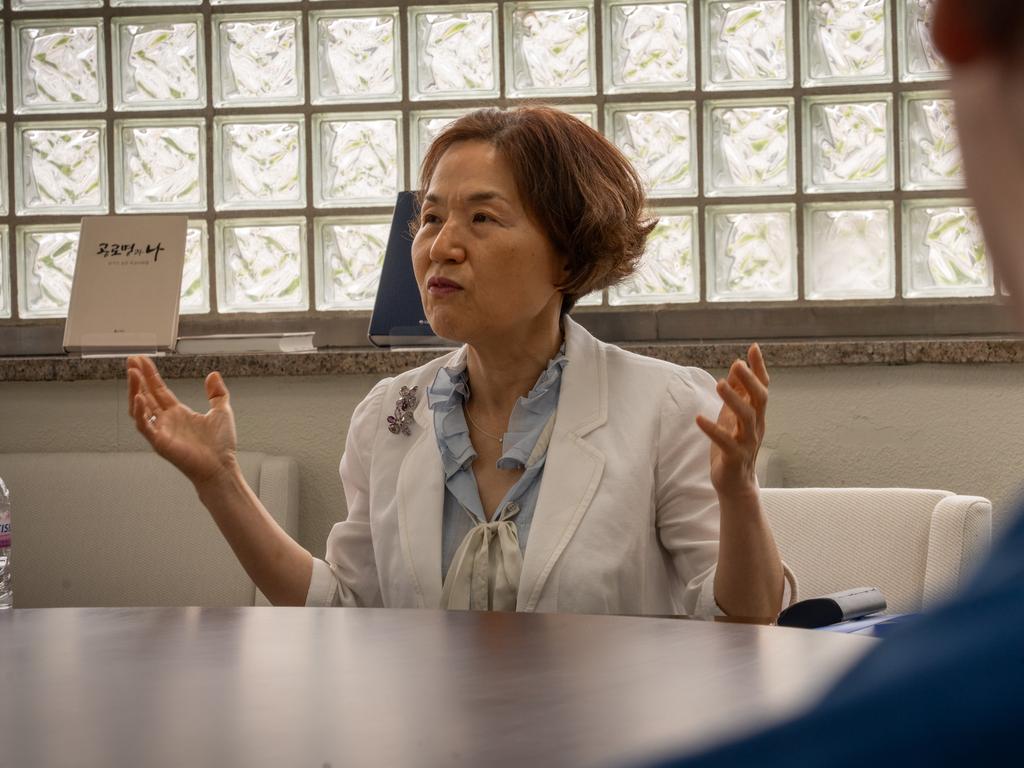
Researchers at the Asan Institute think tank say their nation has always been in a state of burgeoning disaster.
The capital city, placed astonishingly close to one of the most intense borders on planet earth, has proven time and time again that anything is possible if its people are free from authoritarian shackles.
There’s a theory that South Korea’s hustle culture was born out of the universal existentialism that encapsulates Korean life.
After 10 minutes gazing at the heavily polluted border into the dystopian North, it’s crystal clear which side of the border has a better quality of living.
Every every K-Pop star, every Hyundai, every slice of beef roasted over an open flame for hungry tourists serves as a giant middle finger to South Korea’s biggest rival.
The problem up North
Like a jealous younger brother, the infamously isolated North continues to despise the South’s independence and commitment to freedom and democracy.
Catching a cheeky glance of one of South’s television programs, which are routinely snuck across the border by activists, will earn you a prison sentence — or worse — in the North. Such is the iron-fist of the Kim dynasty.
While Seoul ventures into the future with artificial intelligence, a thriving tourism sector and strengthening relations with Western superpowers, Pyeongyang is on the ropes.
They use fear and coercion to control their population, as the leadership presses on with a nightmarish insistence on being a fearsome nuclear state unafraid of stoking geopolitical tensions.
Nevertheless, the new generation of South Koreans has taken a more zen approach to the fact there is a dictator on their doorstep who regularly threatens destruction.
There has been a recent return to shamanistic culture amongst South Korean youth, and buddhism continues to be a prominent cornerstone of modern life.
Spiritualism aside, locals understand that their economic success is vital to their survival and have gone all-in on the hard-nosed philosophy of growth.
It’s not just about getting rich, it’s about proving the world — and most importantly North Korea — wrong.
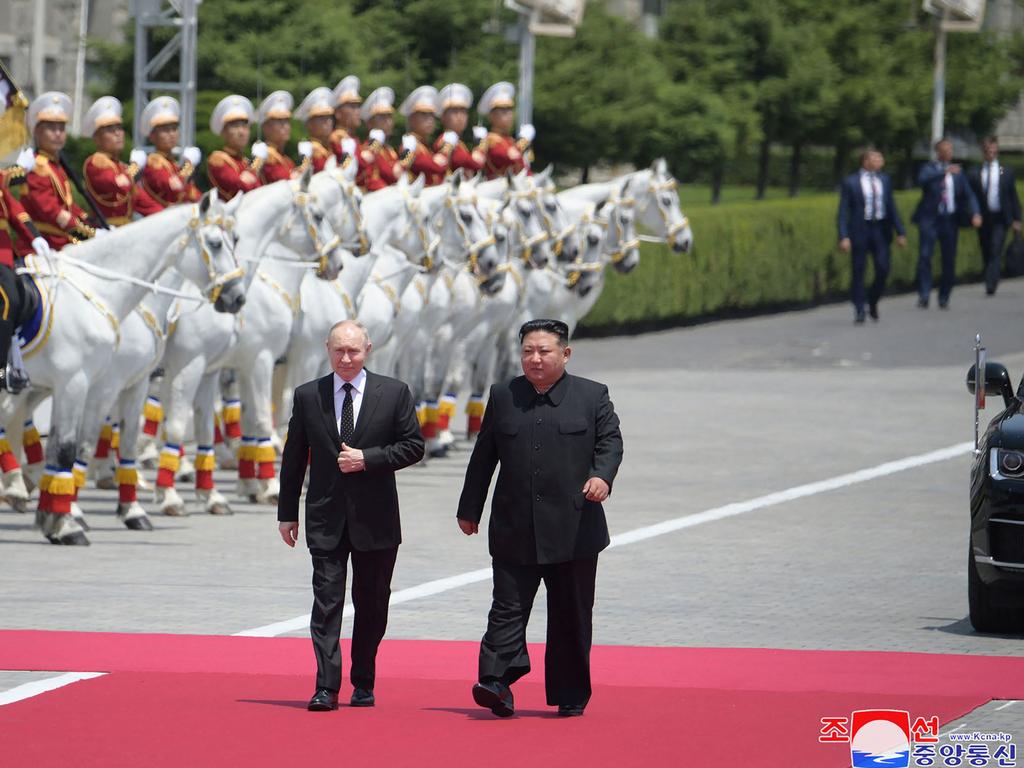
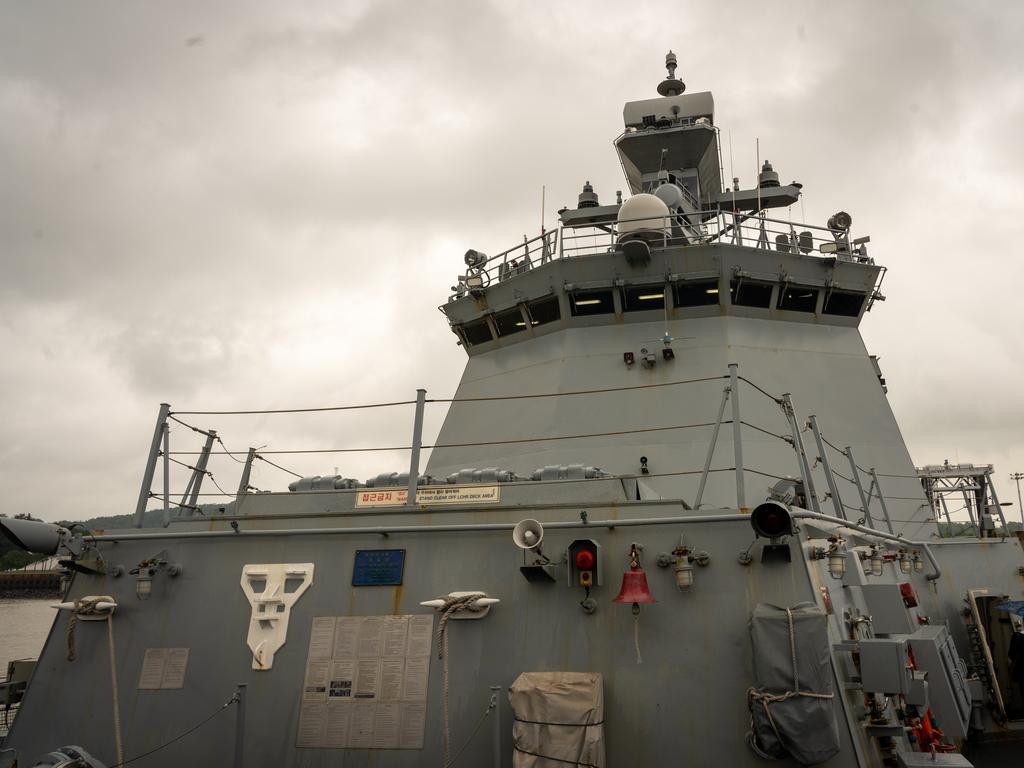
Seoul’s dark side
But you can’t have an omelette without breaking some eggs.
There is a massive wealth divide and rampant cost of living pressures similar to what the West is experiencing, which has lit a fire under activists across Seoul.
There is also a darker side to South Korea’s biggest city if you peep down the wrong alleyway. One street near Insadong had a dozen or so men slumped over in an apparent drug-induced haze at 1pm, serving as an apt signpost for the economic pressures faced by the city’s poorest.
Nearby streets were periodically flooded by angry protests over everything from worker’s rights, the US election and the war in Gaza.
As we were preparing to leave, a thunderous Free Palestine protest made its way through one of the busiest tourist strips in Insadong.
Elsewhere, a woman could be seen waving the South Korean and Israeli flags in tandem, as a heavy police presence surrounded a pro-Israel movement.
While there may be a nonchalant attitude to the threat on their doorstep, it’s clear that large portions of the South Korean populous are fired-up enough about problems at home that they will actively give up their Saturday to rally in the street.
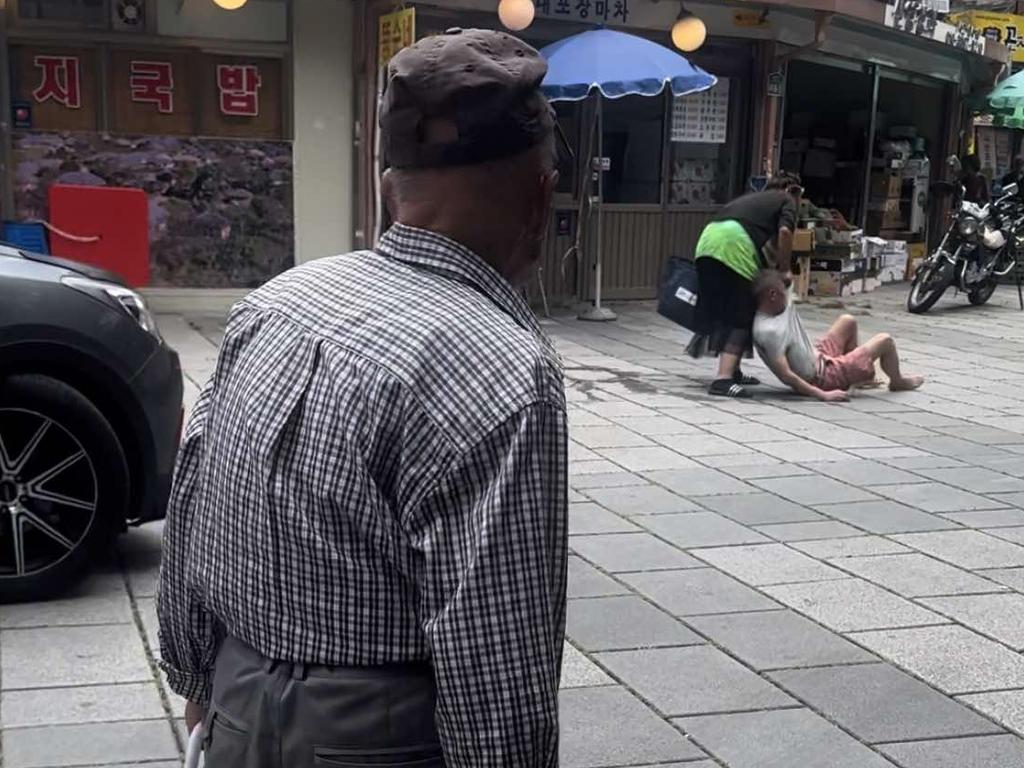
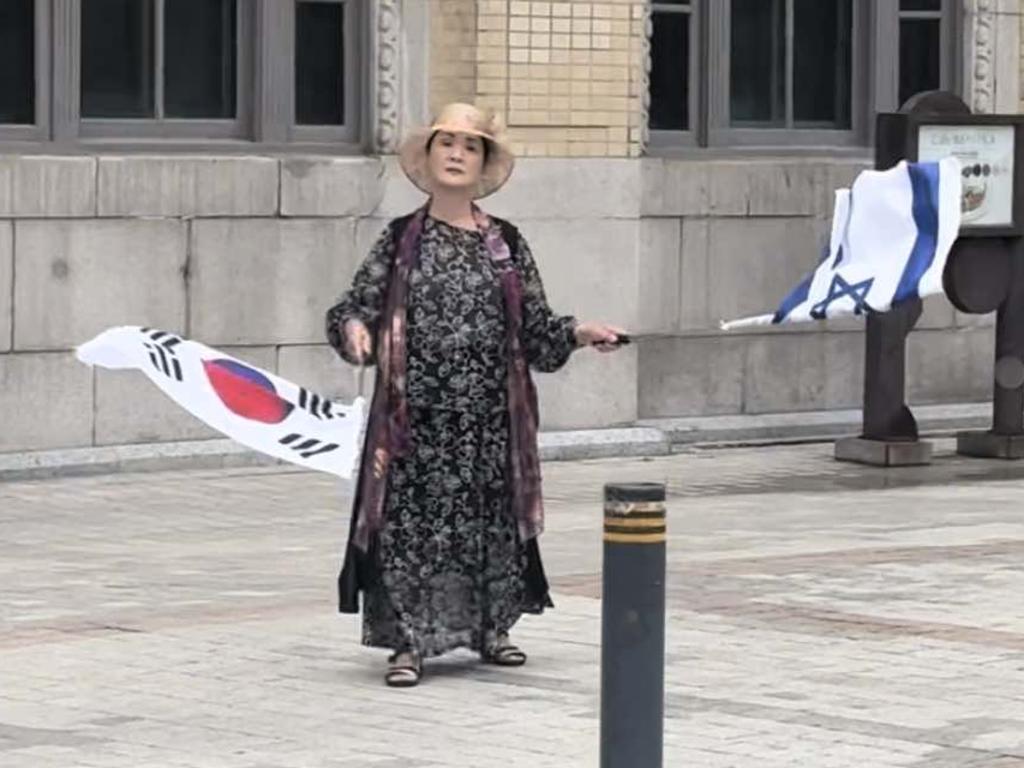
Despite the North’s intimidatory tactics, Kim Jong-un now stands as more of a figure of archaic ideals than a frightening dictator hellbent on destruction.
While both points are true, South Korea’s new generation have pushed forward and find their own way in a new and rapidly evolving world.
It is something we can all take on-board the next time we have a whinge about relatively mundane issues that weigh on our daily lives Down Under.
Alex Blair was part of Australia’s press delegation organised by The Walkley Foundation, Korea Press Foundation and the Australia-Korea Foundation.





